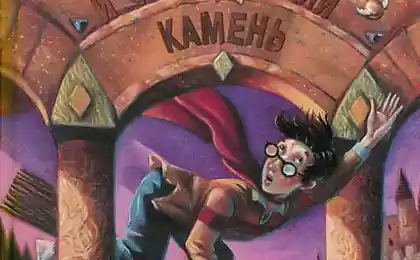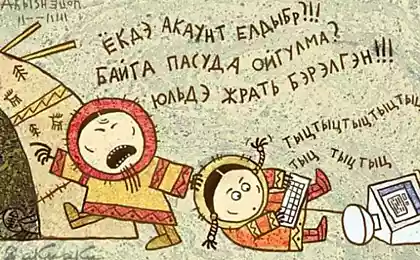917
9 the strangest languages. No luck to those who have to teach them!
The language of every nation - an integral part of its cultural heritage. Learn the language, you can learn a lot about the people who use it, about their history, traditions and habits. In addition, when a person learns a foreign language, it is better to know your own. After all, compared to manifest such features, in which you simply did not have paid attention.
Learning any foreign language is difficult. Because every language to some extent different from the other, and also has a number of features, many of which lead students into a state of stupor. As an example, these 9 languages with a one or more strange, that is very different from the rest of the world's languages.
1. In the language of the tribe Tuyuk have to explain everything. B>
The number of people who speak that language, less than a thousand. In it you can not say anything, every detail must be complemented by appropriate explanations. For example, not enough to say 'A boy plays with a ball. " The proposal must necessarily be: "A boy playing with a ball. I know this, as I see it. " In addition to the language of the tribe Tuyuk there are more than 140 genera, one of which is specially designed for objects that resemble tree bark.

2. In no place chalkatongo issues. B>
In the language of the people do not have any special methods to designate a general question. They pronounce it with the same tone and written in the same way as the standard offer. I understand that you asked the question, only out of context.
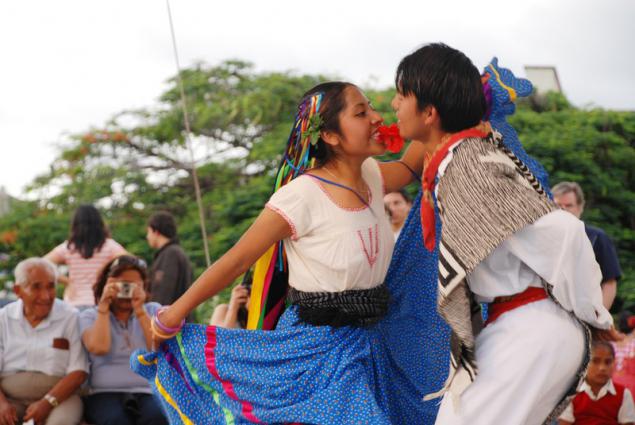
3. Languages of Aboriginal Australia - continuous improvisation. B>
Over the years, tens of thousands of languages Australian people were completely isolated from outside interference. The main feature of these languages is not only the large number of obscure affixes, but the lack of a fixed order of words in a sentence. This means that the words can be in any order.

4. Separate the pronoun "you" to refer to the King. B>
And not only the pronoun, but also a mini-language, in which there are various combinations of the old Khmer words and prefixes along with the usual Thai roots. This language is used in a conversation with the king, and when someone says about the king, such as the news.

5. Native speakers Berik not tolerate omissions. B>
This language is structured so that it is impossible to talk about action, not mentioning the time and place where it happened, and the number or amount of items that were involved in the action. For example, if we can say, "I gave a friend a bouquet of roses", in the language of Berwick you will have to clarify that I did it in the evening and that Rose was nine. All these details point to the end of the special verbs.
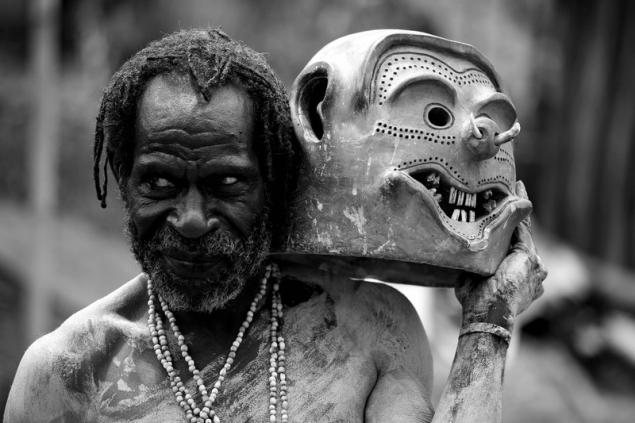
6. Al sayidsky sign language. B>
If all the other languages, including sign languages, are constructed from the same or similar elements in the Al-sayidskom this rule does not apply. Observing the gestures of people who use the language, you will not notice any repetition.

7. The inhabitants of tribal feasts is not the time. B>
We speak the language of that tribe is not possible to express the sequence of events and the actions or events to the past or the future. The whole culture feasts enclosed in one big right now. They do not think about the past or the future - do not make reserves for a rainy day, do not grieve for the dead, they do not tell the children stories and brag about their achievements.
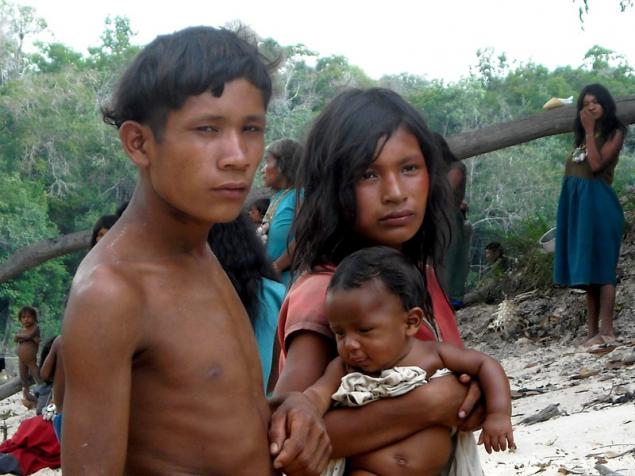
8. German: listen to the end, before you know what I mean. B>
Despite the fact that the German language has something in common with the British, and in it there is that it makes people studying it bite your elbows. It is not only words like Rindfleischetikettierungsüberwachungsaufgabenübertragungsgesetz, but the order of words in a sentence where the verb is at the end, and it is not clear that the person is going to tell you until you hear it to the end, even if the proposal is very long.

9. Native speakers Burushaski perceive the world of sounds in their own way. B>
On severnopakistanskom Burushaski language spoken by about 90,000 people. In it there are some words for the same actions or events that have occurred, accompanied by different sounds. For example, the door opened loudly, the door opened with a sound medium-volume or low - it will already be 3 separate words for "door opened».

These amazing languages indicate how many new and unexplored in our world. Be sure to share the article with your friends, especially those who are interested in foreign languages!
Learning any foreign language is difficult. Because every language to some extent different from the other, and also has a number of features, many of which lead students into a state of stupor. As an example, these 9 languages with a one or more strange, that is very different from the rest of the world's languages.
1. In the language of the tribe Tuyuk have to explain everything. B>
The number of people who speak that language, less than a thousand. In it you can not say anything, every detail must be complemented by appropriate explanations. For example, not enough to say 'A boy plays with a ball. " The proposal must necessarily be: "A boy playing with a ball. I know this, as I see it. " In addition to the language of the tribe Tuyuk there are more than 140 genera, one of which is specially designed for objects that resemble tree bark.

2. In no place chalkatongo issues. B>
In the language of the people do not have any special methods to designate a general question. They pronounce it with the same tone and written in the same way as the standard offer. I understand that you asked the question, only out of context.

3. Languages of Aboriginal Australia - continuous improvisation. B>
Over the years, tens of thousands of languages Australian people were completely isolated from outside interference. The main feature of these languages is not only the large number of obscure affixes, but the lack of a fixed order of words in a sentence. This means that the words can be in any order.

4. Separate the pronoun "you" to refer to the King. B>
And not only the pronoun, but also a mini-language, in which there are various combinations of the old Khmer words and prefixes along with the usual Thai roots. This language is used in a conversation with the king, and when someone says about the king, such as the news.

5. Native speakers Berik not tolerate omissions. B>
This language is structured so that it is impossible to talk about action, not mentioning the time and place where it happened, and the number or amount of items that were involved in the action. For example, if we can say, "I gave a friend a bouquet of roses", in the language of Berwick you will have to clarify that I did it in the evening and that Rose was nine. All these details point to the end of the special verbs.

6. Al sayidsky sign language. B>
If all the other languages, including sign languages, are constructed from the same or similar elements in the Al-sayidskom this rule does not apply. Observing the gestures of people who use the language, you will not notice any repetition.

7. The inhabitants of tribal feasts is not the time. B>
We speak the language of that tribe is not possible to express the sequence of events and the actions or events to the past or the future. The whole culture feasts enclosed in one big right now. They do not think about the past or the future - do not make reserves for a rainy day, do not grieve for the dead, they do not tell the children stories and brag about their achievements.

8. German: listen to the end, before you know what I mean. B>
Despite the fact that the German language has something in common with the British, and in it there is that it makes people studying it bite your elbows. It is not only words like Rindfleischetikettierungsüberwachungsaufgabenübertragungsgesetz, but the order of words in a sentence where the verb is at the end, and it is not clear that the person is going to tell you until you hear it to the end, even if the proposal is very long.

9. Native speakers Burushaski perceive the world of sounds in their own way. B>
On severnopakistanskom Burushaski language spoken by about 90,000 people. In it there are some words for the same actions or events that have occurred, accompanied by different sounds. For example, the door opened loudly, the door opened with a sound medium-volume or low - it will already be 3 separate words for "door opened».

These amazing languages indicate how many new and unexplored in our world. Be sure to share the article with your friends, especially those who are interested in foreign languages!
Stars of Russian show business as a child. 20 photos that make you not believe my eyes!
What is the clothing brand from the Internet to an ordinary woman. The difference is killing!












